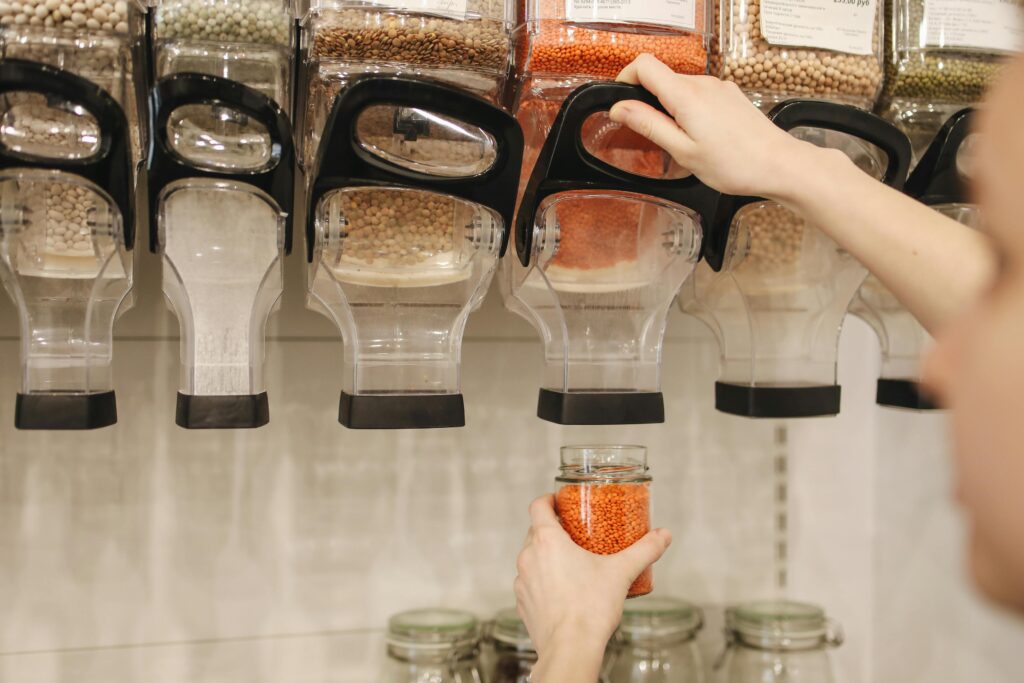How to Eat Healthy on a Budget: 10 Simple Tips that Work

I don’t know if you’ve noticed… but grocery prices have gone through the roof lately. Between the cost of fresh produce, rising meat prices, and the never-ending snack aisle temptations, eating healthy can feel like a luxury many Canadians can’t afford. But eating healthy on a budget isn’t impossible!
Follow these 10 simple tips to eat healthy on a budget:
- Plan your meals ahead of time
- Make a grocery list and stick to it
- Buy whole foods over processed ones
- Cook at home more often
- Embrace meatless meals
- Buy in bulk (when it makes sense)
- Shop seasonal and local produce
- Limit sugary drinks and packaged snacks
- Use leftovers wisely
- Track your spending and adjust
Eating a balanced diet doesn’t have to cost more. With a little planning and a few smart strategies, you can fill your belly without emptying your bank account. You don’t need to eat trendy superfoods off of a wooden cutting board or buy everything 100% organic. You need real food for real-life schedules and real budgets.
10 Tips to Eating Healthy on a Budget
Going to the grocery store shouldn’t stress you out. Try these 10 tips to stick to your grocery budget.
Plan Your Meals Ahead of Time
Meal planning is one of the simplest ways to save money and reduce food waste. Even jotting down what you’ll eat for the week can make a huge difference.
Pick a few go-to meals and build your grocery list around them. If you know broccoli is on sale, that may become your veggie of the week. Leftover chicken? Use it for wraps, salads, or a stir-fry. When you plan, you spend with purpose—not panic.
Make a Grocery List & Stick to It
You walk into the store for “a few things” and leave with a cart full of snacks, sauces, and stuff you don’t need. Do you feel personally attacked? I’m guilty of this one, and my bank account always pays the price. A shopping list keeps you focused and helps you avoid impulse purchases that drive up your bill.
Pro tip: Eat before you shop. A hungry you is way less disciplined than a full you—this is science… or something.
Buy Whole Foods Over Processed Ones
Pre-cut fruit, microwave meals, and snack packs might save time, but they usually cost more and come with added sugar, sodium, or filler ingredients.
Stick with whole foods as much as possible. Think oats instead of sugary cereal, whole carrots instead of baby carrots, and a block of cheese instead of pre-shredded. It’s a little more prep work, but the savings—and potential health benefits—add up fast.
Cook at Home More Often
Takeout is convenient but rarely cheap, and it’s hard to control what goes into your food. Even just cooking 3 more meals a week at home can cut costs and help you feel better.
Keep it simple. You don’t need to channel your inner chef to make healthy meals. Just learn 3 to 5 easy meals you can rotate. Sheet-pan dinners, stir-fries, soups, and rice bowls are great places to start. I pretty much live on stir-fries that I rotate seasonings and veggies on. You can put a stir fry on anything!
Embrace Meatless Meals
As a vegan, I can’t recommend this tip enough, and it’s not because I think you should be one, either. When I went vegan almost 2 years ago, my grocery bill was nearly cut in half instantly. And even as grocery prices crept up, my bills didn’t climb very much at all.
Protein doesn’t have to mean a big steak or chicken breasts on your plate. Beans, lentils, eggs, tofu—even canned fish like tuna or salmon—are all budget-friendly and nutrient-packed. Try going meatless once or twice a week. Your wallet and digestion will thank you.

Buy in Bulk (When It Makes Sense)
Things like oats, rice, dried beans, lentils, and pasta are usually cheaper in bulk. They last a long time, and you can portion out exactly what you need. That said, don’t go overboard. Buying 10 pounds of quinoa doesn’t help if it sits in your cupboard untouched. Stick to staples you know you’ll actually eat.
Shop Seasonal & Local Produce
Out-of-season produce is often more expensive and less fresh. Buying in-season and local means you get the best bang for your buck and support nearby farmers. When fresh produce is too pricey, frozen is your friend.
Some might say that frozen fruits and vegetables are of lower quality. But in reality, they’re often picked at peak ripeness and flash-frozen, making them more nutritious than produce shipped across the globe.
Limit Sugary Drinks & Packaged Snacks
Blowing $20+ on a few sodas, granola bars, or fancy protein drinks is easy. But these are often full of added sugars and don’t keep you full for long.
Instead, drink more water (add lemon, cucumber, or mint to jazz it up) and make your own snacks. Popcorn, fruit, yogurt, or a handful of nuts can keep you going without draining your wallet.
This doesn’t mean you can’t eat cookies, but being mindful of how many snack foods you’re buying will make a huge difference in the budget.
Use Leftovers Wisely
Leftovers aren’t boring—they’re a head start on your next meal!
Make an extra big dinner so you have lunch the next day. Turn last night’s chicken into a wrap or soup. Toss roasted veggies onto rice or pasta. Even just dedicating 1 night a week as a “leftover night” can save time, money, and stress. Plus, it reduces food waste, which is a win all around.
Track Your Spending & Adjust
You don’t have to be a budget wizard, but it helps to know where your money’s going. If you track your grocery spending for a few weeks, you’ll probably spot patterns—like overspending on snacks or buying more than you need.
Try setting a weekly grocery limit and challenging yourself to stay under it. Even saving $10–15 a week adds up over time.
Your Health & Wallet Are Worth It
Life is expensive right now, and it’s easy to feel like your health has to take a back seat when you’re focused on making ends meet. But the truth is, fueling your body well—especially during tough times—is one of the best investments you can make.
You don’t need perfection. You don’t need fancy. You just need a plan, a few go-to meals, and the mindset that your well-being matters.
Try 1 or 2 of these tips this week. Make small, sustainable changes. Healthy eating isn’t about rules, it’s about giving your body the support it deserves, in a way that works for you.
If you’re sick of spinning your wheels, contact me to book a free consultation. I can give you actionable advice that helps you take control of your lifestyle and your grocery bill.